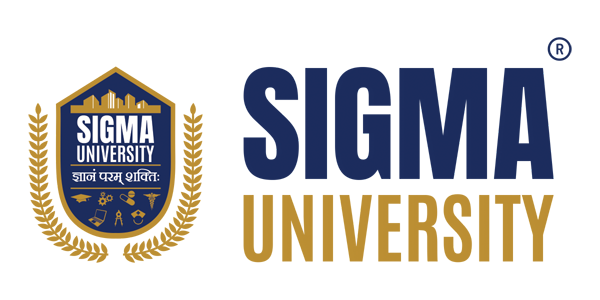How to Prepare for MBA Entrance Exams (CAT, XAT, NMAT)
Pursuing an MBA from a top business school in India is a dream for many students and working professionals. The journey, however, begins with cracking competitive entrance exams such as CAT (Common Admission Test), XAT (Xavier Aptitude Test), and NMAT (Narsee Monjee Aptitude Test). These exams are gateways to prestigious institutions like the IIMs, XLRI, NMIMS, and several other reputed B-schools. Given the intense competition, MBA entrance exam preparation requires strategy, discipline, and smart work rather than endless study hours. This guide explains the exam patterns, effective study strategies, and expert tips to help you prepare for MBA entrance exams with confidence. Understanding the MBA Entrance Exam Landscape Before diving into preparation, it’s crucial to understand the nature of these exams. While they all test aptitude, reasoning, and verbal ability, each exam has unique characteristics: CAT: Conducted annually by the IIMs, CAT is considered one of the toughest exams in India. It emphasizes quantitative aptitude, logical reasoning, and verbal ability. XAT: Conducted by XLRI Jamshedpur, XAT tests similar skills but includes Decision Making and General Knowledge, making it distinctive. NMAT: Managed by GMAC, NMAT has an adaptive exam pattern, flexible scheduling, and multiple retake options, making it student-friendly while still challenging. Understanding the difference between CAT, XAT, and NMAT helps aspirants plan preparation strategies tailored to each. CAT Exam Overview CAT is the most widely attempted MBA entrance exam in India. Pattern: Computer-based, 2 hours duration Sections: Verbal Ability & Reading Comprehension (VARC), Data Interpretation & Logical Reasoning (DILR), Quantitative Aptitude (QA) Marking Scheme: +3 for correct answers, -1 for wrong answers (MCQs), no negative marking for non-MCQs Acceptance: IIMs and 1,200+ B-schools across India XAT Exam Overview XAT is known for its difficulty and unique sections. Pattern: Computer-based, 3 hours duration Sections: Verbal & Logical Ability, Quantitative Ability & Data Interpretation, Decision Making, General Knowledge Marking Scheme: +1 for correct, -0.25 for incorrect, penalty for unattempted beyond a certain limit Acceptance: XLRI and 150+ B-schools The Decision Making section sets XAT apart, requiring logical reasoning and ethical judgment. NMAT Exam Overview NMAT is student-friendly due to its flexibility and adaptive testing. Pattern: Computer-based, 120 minutes Sections: Language Skills, Quantitative Skills, Logical Reasoning Adaptive Nature: Questions adapt to performance level Retakes: Up to 3 attempts allowed Acceptance: NMIMS and 30+ other B-schools Its unique retake option makes NMAT ideal for students wanting multiple chances to improve their scores. Step-by-Step Preparation Strategy for CAT, XAT, and NMAT A structured preparation strategy for CAT, XAT, and NMAT can make the difference between average performance and the top percentile. Step 1 – Understand the Syllabus & Pattern All three exams cover Quantitative Aptitude, Verbal Ability, and Reasoning. XAT adds Decision Making and GK, while NMAT offers sectional flexibility. Study official syllabi before starting. Step 2 – Create a Daily Study Plan Allocate 3-5 hours daily for 6 months. Rotate between Quant, Verbal, and Reasoning. Dedicate weekends to full-length mocks. For working professionals, early mornings or late evenings work best. Step 3 – Choose the Right Study Materials Some of the best study materials for MBA entrance exams include: Quantitative Aptitude by Arun Sharma How to Prepare for Verbal Ability and Reading Comprehension by Arun Sharma & Meenakshi Upadhyay Word Power Made Easy by Norman Lewis Online platforms like Unacademy, Career Launcher, TIME, and YouTube offer strategy sessions Step 4 – Practice Sectional & Full-Length Mocks Mocks are the best way to prepare for MBA entrance exams. Take at least one mock per week initially, increasing to 2-3 per week closer to exams. Step 5 – Analyze Performance & Improve Weak Areas After every mock test, spend twice the time analyzing as you spent attempting. Focus on accuracy, question selection, and weak topics. Tips to Crack CAT, XAT & NMAT While general preparation overlaps, each exam needs special attention. CAT Preparation Tips Focus on Data Interpretation & Logical Reasoning (DILR), often the toughest. Prioritize mock test analysis over theory in the last 2 months. Practice time-bound reading comprehension for speed. XAT Strategy Tips Develop decision-making skills through practice sets and case studies. Focus on abstract reasoning in Verbal & Logical Ability. Revise GK daily; it can help in the final selection even if not counted in the percentile. NMAT Preparation Guide Adapt to the adaptive exam pattern by practicing sectional timing. Attempt easier questions first to maximize score. Use retake opportunities smartly, schedule early attempts for practice, and afternoons for maximizing scores. Time Management & Exam Day Strategy Effective time management for the MBA entrance is as crucial as preparation itself. During preparation: Set realistic daily and weekly targets. Use timers to simulate exam conditions. On exam day: Do not get stuck on difficult questions. Each section has a limited time, so prioritize accuracy and speed. Mindset: Stay calm, avoid last-minute cramming, and ensure proper rest before the exam. Online vs Offline Coaching: Which is Better for MBA Prep? Choosing the right coaching format depends on learning style and resources. Online coaching for MBA exams offers flexibility, lower fees, and access to national-level mentors. Offline coaching provides structured classrooms, peer competition, and discipline. Hybrid approach: Many students combine offline basics with online mocks and strategy sessions. Common Mistakes to Avoid in MBA Entrance Preparation Many aspirants reduce their chances by making avoidable mistakes. Avoid these: Ignoring mock analysis and focusing only on practice. Jumping between too many books/resources without mastering one. Neglecting weak areas until the last minute. Poor time management during the exam. Overconfidence after scoring well in sectional practice. Not balancing accuracy with attempt count. Final Advice Before You Begin Prep Preparing for MBA entrance exams (CAT, XAT, NMAT) is a marathon, not a sprint. Start early, create a disciplined study schedule, use the right resources, and consistently evaluate your performance. Remember, cracking these exams isn’t just about hard work but also about smart strategies, time management, and mental resilience. With the right preparation plan, you can turn your MBA dream into reality at India’s top B-schools. Frequently Asked Questions (FAQs)
How to Prepare for MBA Entrance Exams (CAT, XAT, NMAT) Read More »




